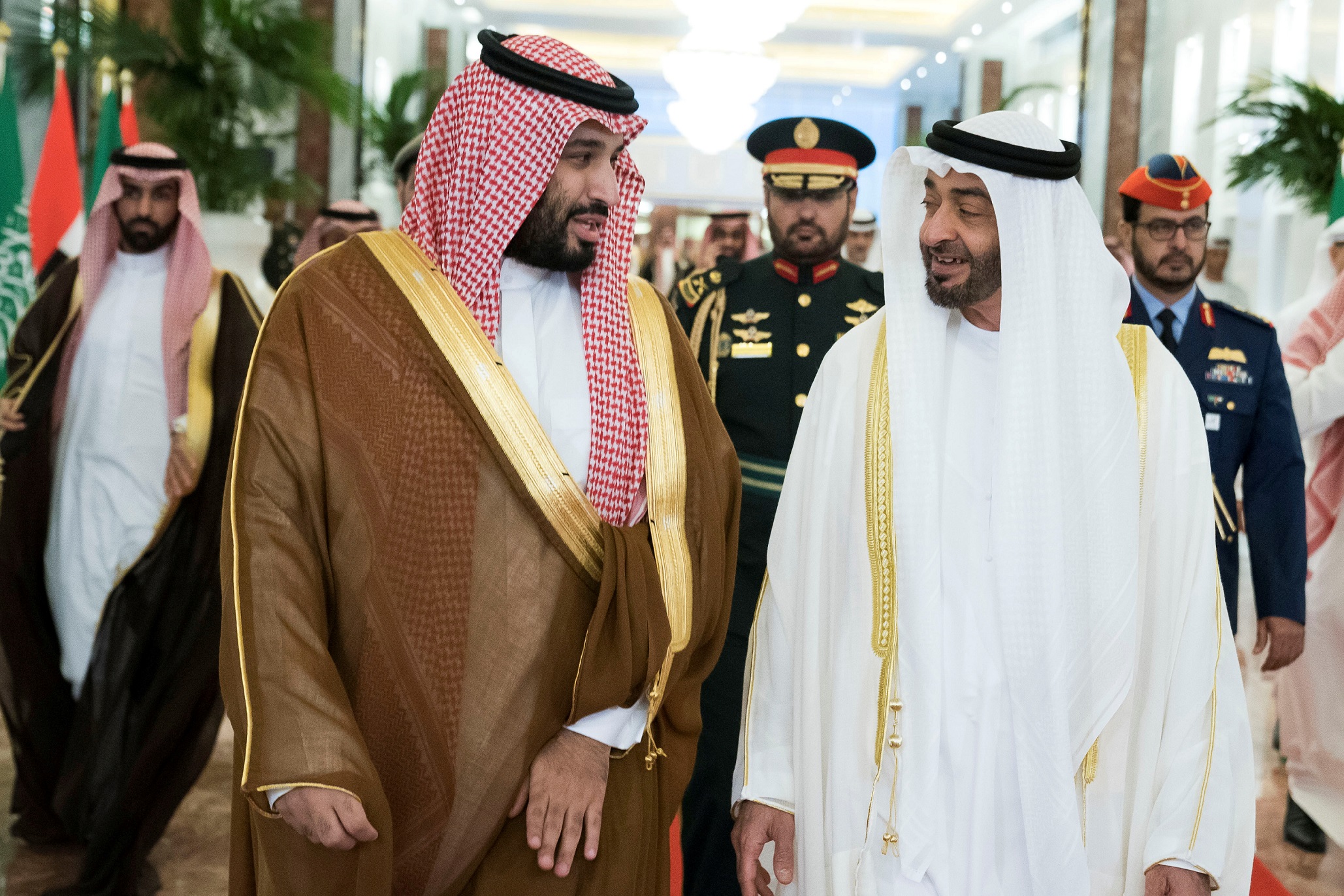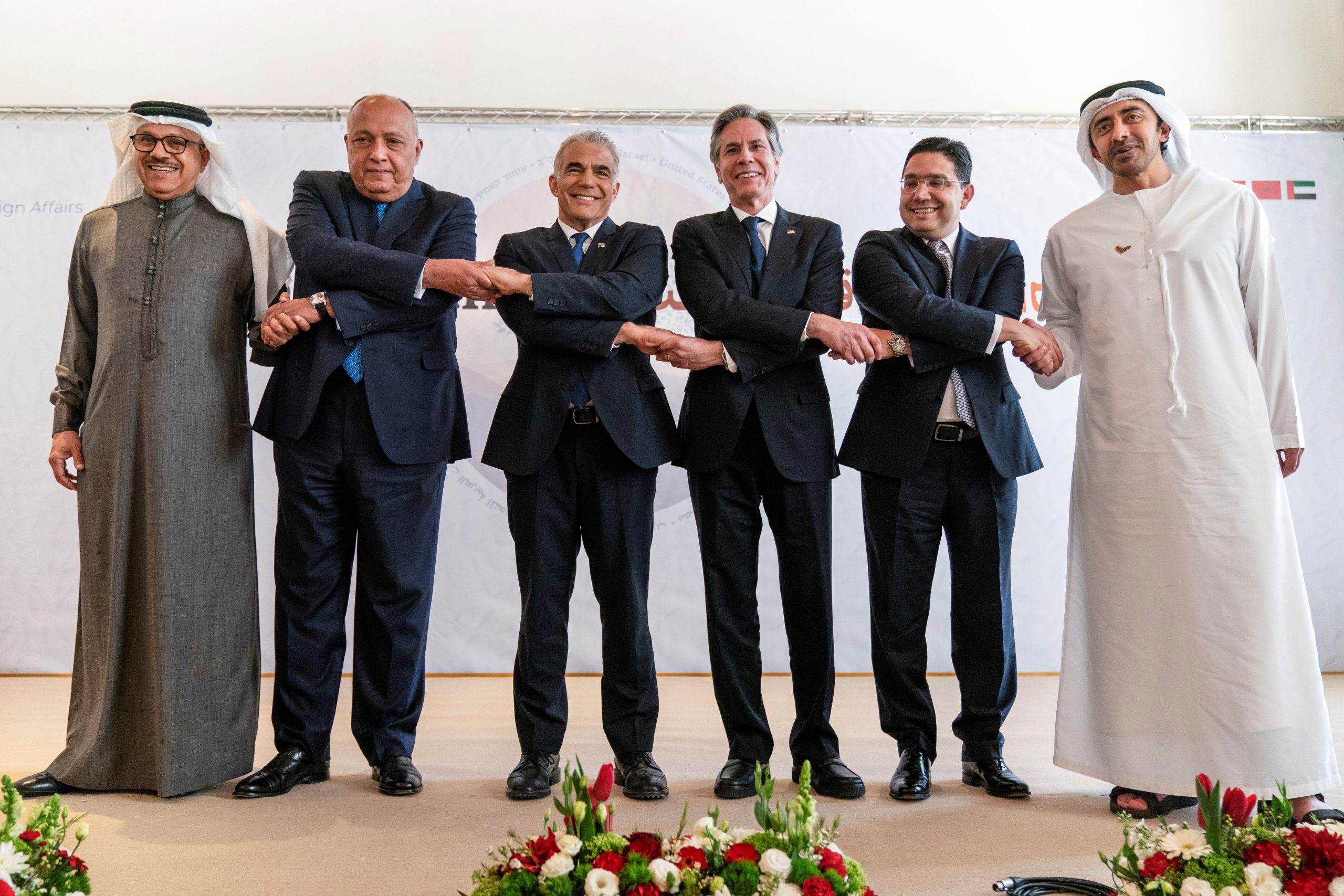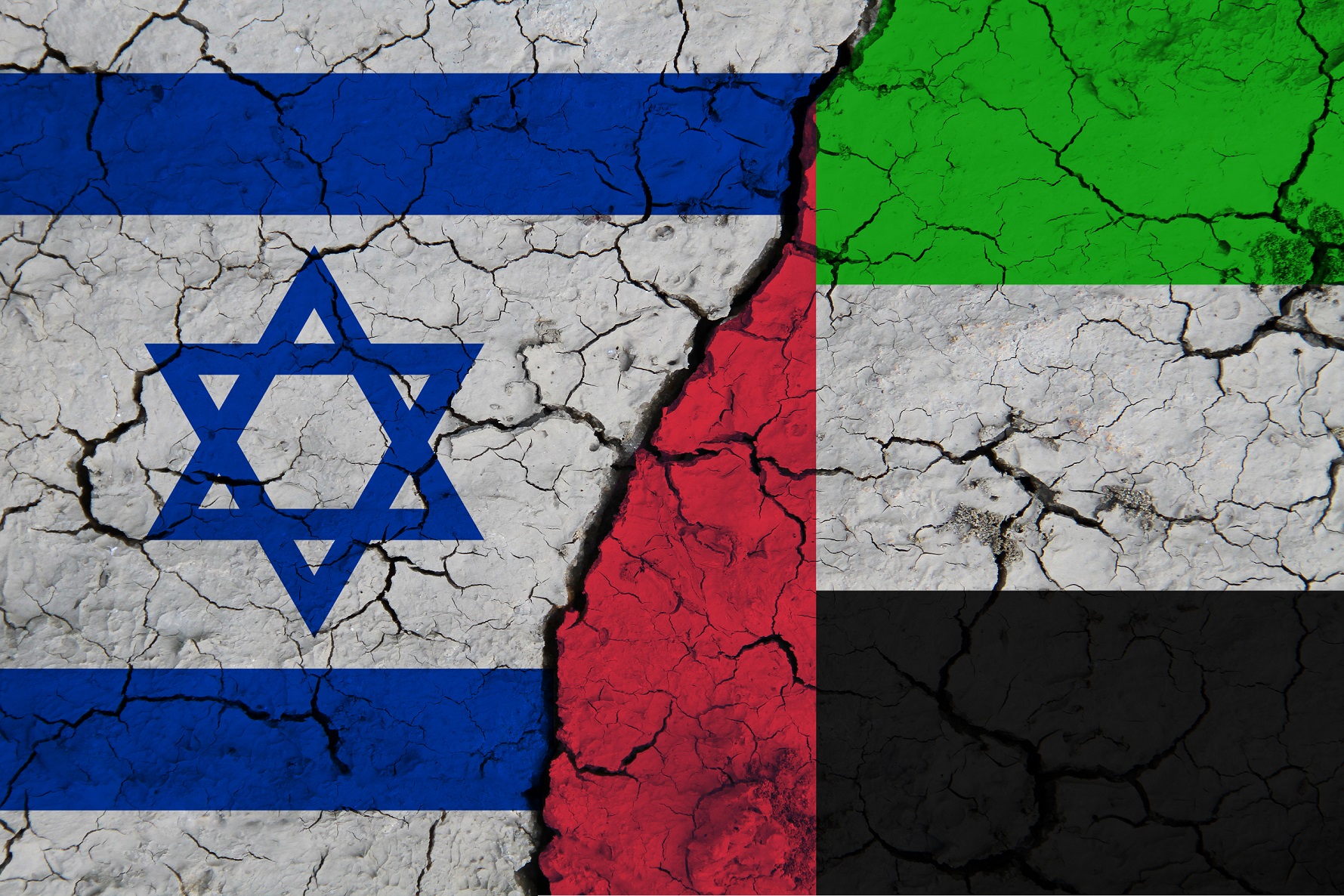Publications
INSS Insight No. 1700, March 22, 2023
The resilience of the Abraham Accords is challenged by policies of the Israeli government and the escalating violence in the Palestinian arena. The countries that signed agreements with Israel have an interest in upholding them, in parallel with developments in the Palestinian arena, in the expectation that the Israel will restore calm and stability. However, continued escalation has already drawn some of them, partly of necessity, to pay closer attention to Israeli policy toward the Palestinians, particularly in the Ramadan period. A comeback of the Palestinian issue to the center of the regional and international stage challenges the existing normalization agreements and the ability to bring other important Arab countries into the normalization process – and this demands Israel’s attention.
The assessment that the normalization between Israel and Arab countries is detached from the Israeli-Palestinian conflict is incorrect. More than two years since the Abraham Accords were signed, it is clear that the Palestinian issue has regained a central position on the Arab world agenda. The escalation in Palestinian terror and IDF actions in the West Bank have not escaped the attention of the Arab Gulf states, above all, the United Arab Emirates and Saudi Arabia. These events, in addition to Israel’s emerging policy on the Palestinian issue, challenge the ability of these Gulf states to maintain a balance between ostensible concern for the Palestinians while simultaneously promoting their economic and security contacts with Israel.
Relations between the leading country of the Abraham Accords, the UAE, and the current right wing government headed by Netanyahu began on the wrong foot back in January, when the UAE canceled the Prime Minister’s planned visit to Abu Dhabi, which should have been a festive start to his new term in office (a visit that has no far not taken place). The cancellation was announced immediately after the controversial visit by Minister of National Security Itamar Ben-Gvir to the Temple Mount. The UAE was unwilling to host Netanyahu while the Islamic world feared a change in Israeli policy vis-à-vis the Temple Mount (including restrictions on Muslims visiting and praying at the Temple Mount, and permission for Jews to pray in the compound). Thus the UAE replaced the reception for the Prime Minister with a proposal condemning Israel in the UN Security Council.

In a fairly unusual move, the UAE has joined the Palestinian delegation in the UN no less than three times since January to issue a condemnation of Israel, using its status as a temporary member of the Security Council (in June 2023 it will assume the rotating role of President). Particularly noteworthy was the UAE strongly-worded notice issued in February, in coordination with the Palestinian delegates, calling on Israel to immediately cease all settlement activity in the conquered Palestinian territories. It was only thanks to US pressure that voting on the binding resolution was replaced by a presidential statement (which has no binding force).
In the background is the gradual warming of relations between the UAE and Bahrain and the Palestinian Authority that were suspended following the Abraham Accords, perceived by the Palestinians as a stab in the back and betrayal of the Palestinian people. It appears that the Palestinian Authority has lately realized the potential benefits to be gained, such as participating in regional projects and using the Abraham Accords countries to discourage the Israeli government from taking extreme measures vis-à-vis the Palestinians. The closer relations between the Palestinian Authority and the UAE could, for example, enable the PA to be involved in infrastructure ventures and regional initiatives in the fields of the economy and energy, based on the Abraham Accords, which will serve both Israeli and Palestinian interests.
Concern over changes in the Temple Mount arrangements and fears of violence in Jerusalem make it harder to implement the Accords, at least the ceremonial side of them. The second meeting of the Negev Summit – the forum established last year with Israel, the United States, the UAE, Bahrain, Morocco, and Egypt – which was planned to take place in Morocco in March, has been postponed.. Western diplomats confirmed that the forum’s Arab member states were worried about holding such a widely publicized event close to Ramadan – which started on March 22 – because in recent years this period has been marked by security escalation in Jerusalem and in the Israeli-Palestinian arena (in particular, the escalation between Israel and Hamas in May 2021 during Operation Guardian of the Walls).

The public calls and pressure from the coalition parties in Israel to expand construction in the West Bank and subordinate the Civil Administration to their representatives (a decision that was indeed confirmed a few days after the UN condemnation) have been discussed on social media in the Gulf, where there is concern that Israel is preparing to annex areas of the West Bank. The social media discourse stresses that the normalization agreement between Israel and the UAE in 2020 was partly intended to prevent such annexation. Thus it is no wonder that the condemnation put forward by the UAE in the Security Council explicitly mentioned “all unilateral measures,” including decisions and measures taken by Israel regarding the settlements and Palestinian territories.
Following the events in the village of Huwara, near Nablus – the damage caused by settlers to the property of Palestinian residents and the call by Finance Minister Bezalel Smotrich to “wipe out the village” (although he subsequently retracted the statement and apologized) – the UAE reportedly suspended deals to purchase security systems from Israel that were about to be signed. In spite of denials from the Israeli government, there was clearly growing unease in the UAE over Israel’s conduct and lack of trust in the calming messages issued by Prime Minister Netanyahu, who is perceived as being under the control of extremist elements in his government.
Unusually strong and numerous condemnations of Israel on the Palestinian issue are also coming from Saudi Arabia – designated by the government as an important target for normalization efforts – referring in part to recent IDF operations in Jenin and Nablus, which took the lives of several Palestinians, and the settlers’ rampage in Huwara. The Saudi Foreign Ministry described Smotrich’s statement as “racist and irresponsible,” reflecting “the amount of violence and extremism practiced by the occupying Israeli entity towards the brotherly Palestinian people.” In addition, Saudi publicists who supported promoting relations with Israel lowered the tone of their calls in the wake of the events, understanding that this was not the time to express support for normalization with Israel.
These political moves and media rhetoric highlight the growing pressure on countries that have signed agreements with Israel and those that are still sitting on the fence, in view of events in the Israeli-Palestinian arena. Iran, which does not favor the normalization process between the Gulf states and Israel, is working to repair its relations with some of the Gulf states, above all Saudi Arabia, a move that if continued could put pressure of its own on the normalization process.
Conclusion
Recent developments do not yet threaten the very existence of the Abraham Accords and have not erased the possibility that other states will join them. However, if the tension in the Israeli-Palestinian arena continues, and particularly if there is an escalation and/or a change in the status quo on the Temple Mount, there could be a freeze in the progress of Jerusalem-Riyadh relations, and even a retreat from the public “honeymoon” between Israel and the UAE, in other words, a halt to the normalization process.
Arab public opinion polls conducted since the signing of the Abraham Accords show that various aspects of the Palestinian problem remain a principal stumbling block to Arab states ability to recognize Israel and forge ties with it. The countries that signed the Abraham Accords, particularly the United Arab Emirates, do indeed have an interest in continued relations with Israel, irrespective of the Palestinian issue.
However, this issue will continue to impact relations, certainly on the public side of normalization. The conduct of the Israeli government, which has contributed to the return of the Palestinian arena to the focus of interest in the region, damages the ability to form a coalition against Iran, which instead of being isolated, is finding ways to improve its relations with the Arab Gulf states – what might put pressure on their normalization with Israel.



